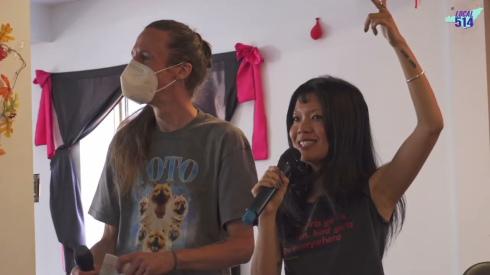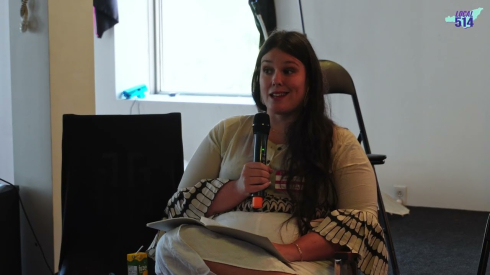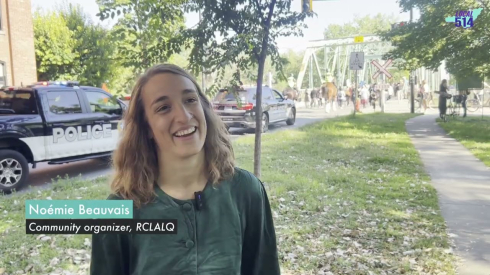- Start playing the video
- Click CC at bottom right
- Click the gear icon to its right
- Click Subtitles/CC
- Click Auto-translate
- Select language you want
Montreal - Impossible Choice: Why Some are Choosing MAiD Over Living In Poverty
Medical assistance in dying has drawn attention to the inequalities in our society, as some living with a non-life threatening disability, experiencing poverty or unable to access housing are seeking MAiD. MAiD has been available to some Canadians since 2016. It was first legalized as a tool for those experiencing intolerable pain during the dying process, but in 2021 eligibility expanded.
Montrealer Jacques Comeau met with a doctor to see if he’s eligible for MAiD last September. The 66-year-old sought assisted suicide after services provided from his Local Community Services Centres, known in Quebec as a CLSC, changed.
As a quadriplegic, Comeau says he's lived a fulfilling and happy life due to home care services. But following changes in home care services last summer, he said new orderlies have performed services incorrectly. He is not familiar with new workers, who are providing such intimate and essential services, and when he contacted the CLSC, they were of little help. He reached out to the CLSC to ask the new orderlies to be trained by the ones that knew him and his specific needs, but said the CLSC allegedly refused.
Comeau’s situation isn’t unique. There are countless other cases across Canada, where those living with a disability are unable to access proper support or housing.
Those living off of disability support by the government are finding it hard to make ends meet.
In Quebec, the maximum monthly amount one can receive under the Québec Pension Plan is $1537.13 a month. The highest average rent for an unfurnished apartment on the island of Montreal is $1,907, with the lowest being $1,236. The average cost of food is $350 per month for a single person, but this average is rising. If you live in the cheapest apartment on average and pay the average price of groceries, you will be in a decifit of $49 while living off of the maximum amount paid by the Quebec Pension Plan.
Alicia-Ann Pauld, a disability rights activist based in Montreal, spoke with Local 514 to further understand how the government is failing those living with disabilities.
Pauld said that many living with a disability are waiting months to be approved for necessities, such as a wheel chair, a walker, paid accommodation in their apartment. While waiting months, she said many pay for their necessities out of pocket instead of waiting on the government, but are not able to be reimbursed.
She said it's ridiculous that an able-bodied person, who doesn't know her specific needs, has to come to her home to confirm if she needs certain accommodations or not.
Eligibility for MAiD was set to expand in March of this year, with those with a mental illness as their sole underlying medical condition able to seek MAiD if they meet eligibility. However, the federal government has delayed expansion until 2024 in order to continue studies assessing this and figure out a proper way to implement it.
Multiple reports outline that some Canadians have requested MAiD because they could not afford proper housing, generating concern that assisted death is a solution for societal challenges.
Proper housing, timely access to mental and physical health services and homecare services must be provided, so that those with disabilities are not using MAiD as an alternative for members of the public not being able to access human rights.
Subsidized housing services are available to Montrealers living with a disability.
Cindy McKay is a board member of Les Habitations adapts et accessible TANGO, a housing cooperative that is partially subsidized and made for those living with a disability. McKay, who’s also been a resident of TANGO for 10 years, says it’s upsetting to see cases in the news of where people living with disabilities are requesting MAiD when they can’t access essential needs.
TANGO is located in NDG and is partially funded by the Accès-Logis program and the CIUSSS de Montréal Centre Ouest. TANGO offers 15 accessible, adapted and affordable housing units to adults between age 18 to 55 that are living with physical disabilities.
McKay says TANGO is a Service for people living with a disability. It's for those who can be autonomous, but need support.
"We’re able to live independently," said McKay.
But Pauld says it’s not always easy to access housing co-ops like TANGO.
"Waitlists can be 10 years," said Pauld. She added that buildings should be more accedible, but many that are, are still unaffordable for many.
With eligibility to MAiD expanding next month, as housing prices soar and accessibility to seek mental and physical health services are backlogged, will we see more cases of Canadians who are experiencing these issues within our society requesting MAiD? Let us know what you think below in the comments.











We encourage comments which further the dialogue about the stories we post. Comments will be moderated and posted if they follow these guidelines:
The Community Media Portal reserves the right to reject any comments which do not adhere to these minimum standards.